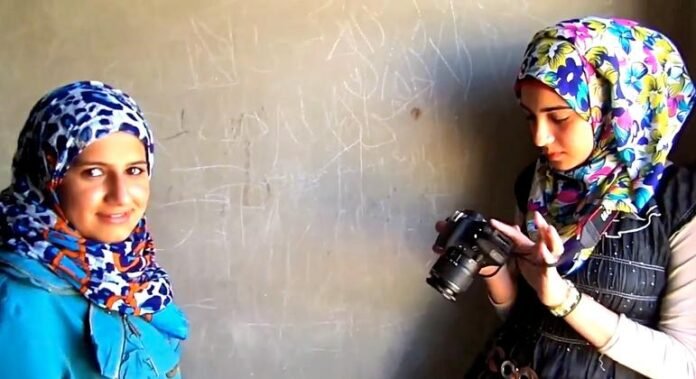Detailed information about this is given here:
Alliance for Humanity
For years this has been the motto of the United Nations Global Alliance of Civilizations: Countless Cultures, One Humanity. Based on this principle, the then UN Secretary General, Kofi Annan, laid its foundation in 2005 to embrace and encourage cultural diversity, religious pluralism and mutual respect.
For nearly two decades, the United Nations Alliance of Civilizations has been fully implementing this policy. The coalition brings together a group of Israeli and Palestinian musicians who organize seminars to combat hate targeting refugees and participate in activities such as engaging in interfaith dialogue around the world.
It seeks to bridge divisions, resolve differences and build a more peaceful, inclusive future through diplomacy locally and globally.
These values are part of the Agreement for the Future, adopted at the Future Summit in New York in September and included in the 17 goals of the 2030 Agenda for Sustainable Development.
UN Secretary-General Antonio Guterres said, “This alliance is not just a ‘feel good’ initiative. It is the foundation of peace, security, sustainable development and the world we want to build.”
For more information on the collaboration, watch the video below:
From artificial intelligence to sports
This alliance of global civilizations organizes global events that serve as a safe meeting place. Over the years, thousands of delegates from more than 130 countries have gathered at these events to discuss recent challenges and agree on future solutions.
In these turbulent times when participants from civil society and government come together to celebrate shared values, hope rises in the hearts of people.
On Monday, the alliance’s 10th forum will begin in Cascais, Portugal, with the theme, Uniting in Peace: Restoring Trust, Rebuilding the Future That is, United for Peace: Restoring Trust and Rebuilding the Future.
In it, delegations from around the world will discuss how the latest methods can be used for everything from artificial intelligence (AI) to sports and peace.
The full program of the Global Forum can be found here.
The three-day event will include UN Secretary-General Antonio Guterres, ambassadors and representatives from civil society and the private sector, who will participate in panel discussions on a range of topics. The purpose of the conference is to inspire a collective will to bring about change in the most pressing issues facing us today.
It will discuss the challenges of innovative solutions, intergenerational systems for sustainable development, religious mediation for peace and ways to combat hatred. On the second day of the global forum, delegates are expected to agree on the Cascade Declaration, a visionary manifesto for action.
The Global Forum will be covered on UN WebTV. The opening ceremony on November 26 at 10 am (GMT) can be seen here.
Thinking of future generations
Another highlight of this global gathering will be the Youth Forum on the first day, which will feature additional events for and by youth around the world. Last year’s youth forum had 1,000 participants. In for the youth this year A tented-tasty get-together for youngsters And many other activities will be included.
To honor the next generation, young directors will be honored at a ceremony on Monday evening at the PLURAL+ Youth Video Festival on Migration, Diversity and Social Inclusion. PLURAL+, a joint initiative of the UN Civilization Alliance and the International Organization for Migration (IOM), invites young people from around the world to submit original, creative videos based on these three themes.
In a world where intolerance and cultural and religious divisions are becoming commonplace, the PLURAL+ program seeks to recognize young people as powerful agents of positive social change. This year’s festival has selected 32 short films from 21 countries, from Afghanistan and Israel to Russia and Yemen.
New Intercultural Innovations
Social circus for social change. Child-friendly cities are designed by children. Soccer for Peace is among more than 1,800 entries from grassroots groups around the world that participated in the Center for Intercultural Innovation competition.
In a ceremony on the second day of the Global Forum, some distinguished entries selected from countries such as Austria, Botswana, Canada, India, Indonesia, Kenya, Nigeria, Peru, USA and Zambia will be awarded.
The competition is co-sponsored by the Alliance of Global Civilizations and the private sector, car manufacturing giant BMW Group and supported by technology company Accenture. It considers new projects for diversity and inclusion, gender equality and the development of arts, culture and sport for social change.
The power of music
The Israeli-Palestinian conflict has continued for decades, sometimes turning violent, such as the ongoing war in Gaza. A conversation that began between two pianists – the Israeli conductor Daniel Barenboim and the late Palestinian writer Edward Said – about alternative ways of dealing with the conflict evolved into the ‘West-East Diwan Group’ in 1999.
The two men, longtime friends, used their experience to start a workshop for young musicians.
“We have musicians from countries that are somehow at odds with each other,” violinist Michael Barenboim said just before a performance at the United Nations headquarters in March 2023.
“Through this we try to show that by joining forces with a project like this, it is possible to bring together people from countries in conflict, so that they can work together towards a common goal.”
Despite the ongoing war in Gaza, the group remains united and is holding concerts to celebrate its 25th anniversary in Europe this month. According to him, “The orchestra’s journey from its first workshop to this milestone highlights its mission of promoting dialogue and solidarity through music.”

